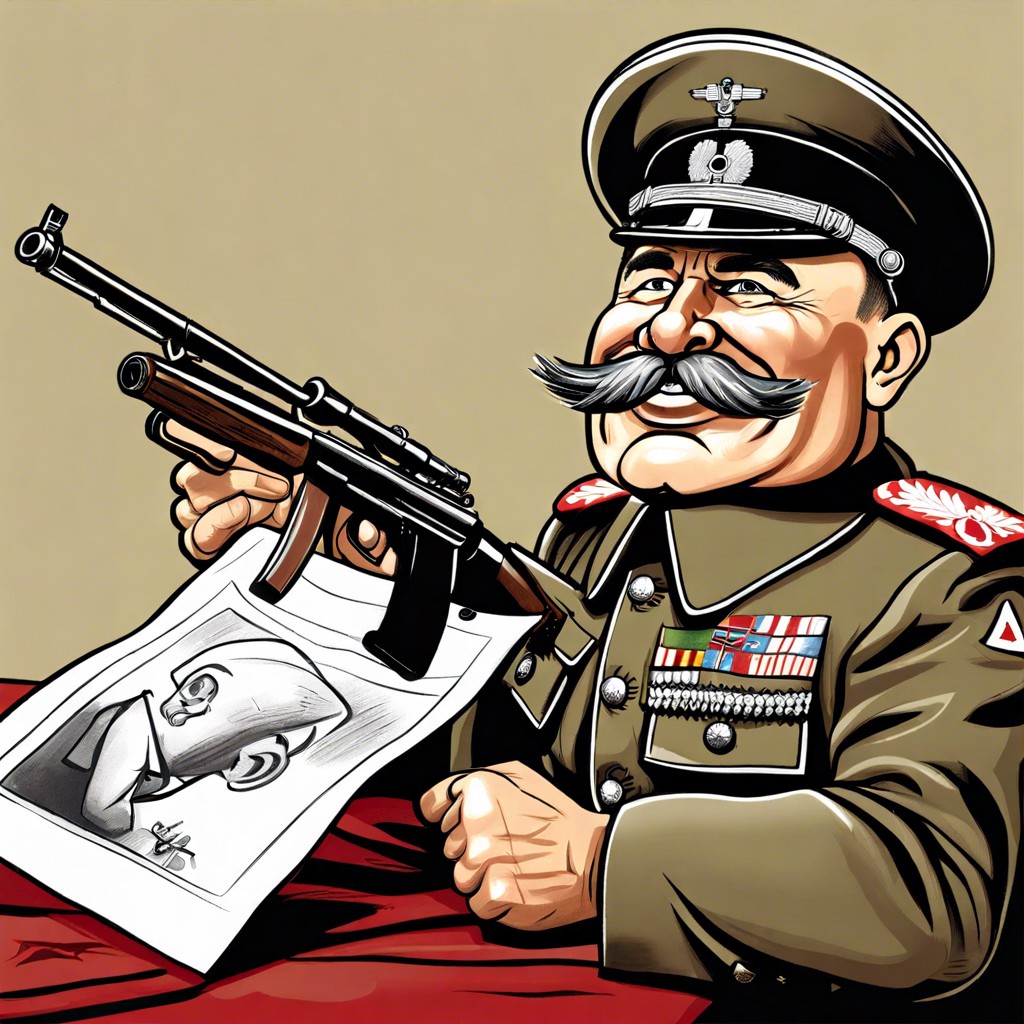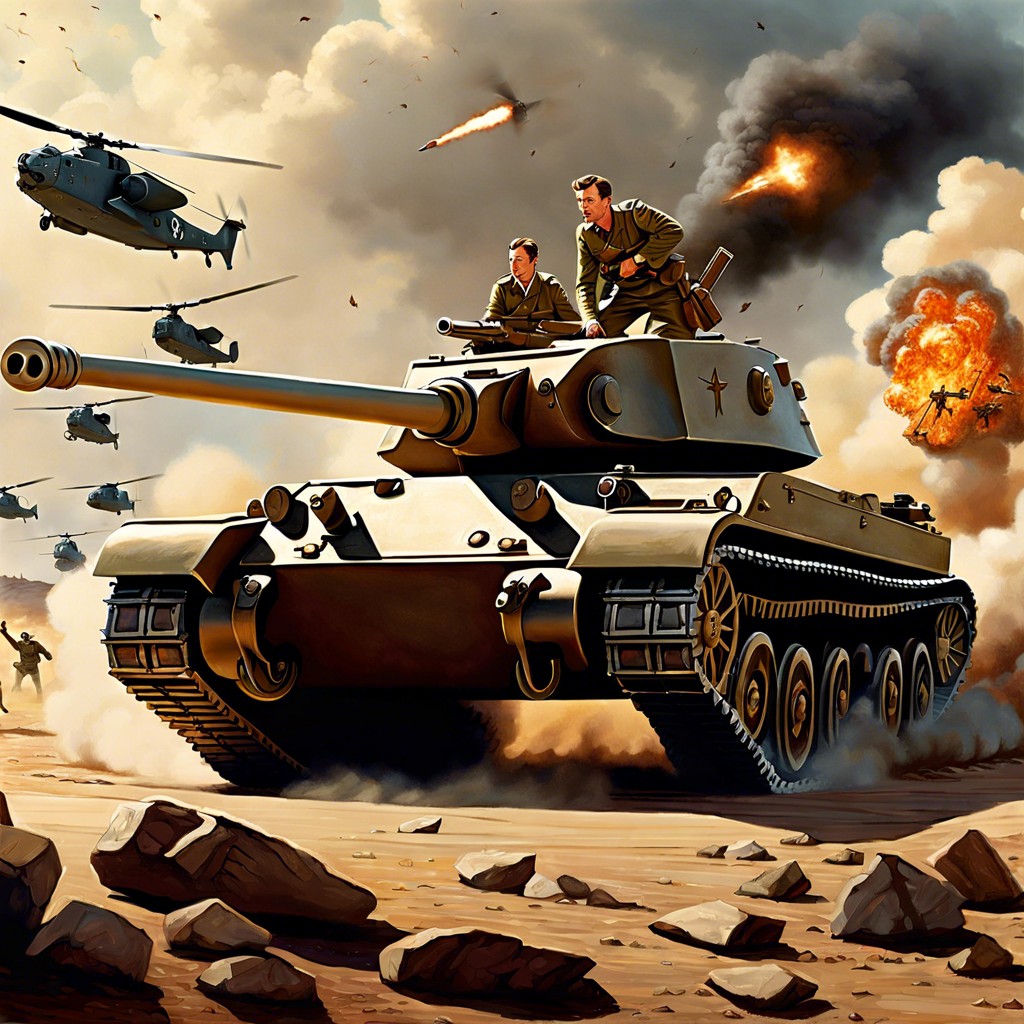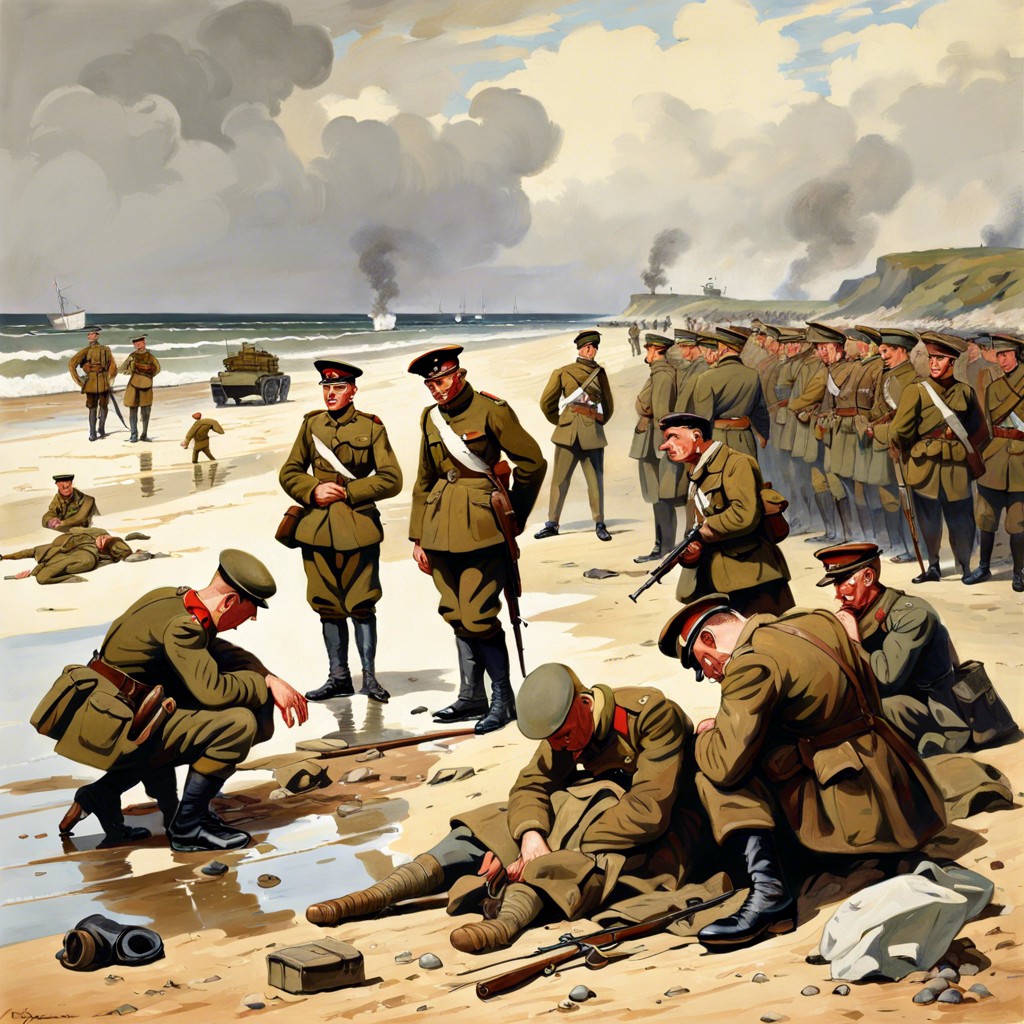Discover how the successful execution of Operation Barbarossa could have reshaped World War II and altered the world map.
Imagine an alternate universe where Operation Barbarossa didn’t just limp toward Moscow but galloped victorious through the Soviet Union. What if the Nazis hadn’t stalled but steamrolled their way to crushing the heart of the USSR? We’re diving headfirst into this speculative rabbit hole to explore how it would shift World War II, transform the Holocaust, alter Europe’s power balance, reshape the Cold War, and wreak havoc on the Soviet economy. Hold on tight; it’s going to be a wild ride through history’s untouched possibilities!
Key takeaways:
- Allies’ strategy shift with USSR defeat.
- Accelerated Holocaust atrocities with larger territory control.
- Europe’s power dynamics radically altered in Germany’s favor.
- Cold War’s trajectory unclear without a Soviet Union.
- USSR faces economic collapse post-Barbarossa success.
Strategic Shifts in World War II

Imagine Hitler’s forces steamrolling through the USSR, capturing Moscow, and establishing control over vast Soviet territories. Quite the game-changer, right?
First off, Allied strategy would shift dramatically. With the USSR crippled, the burden on Western Allies like the US and Britain would multiply. Resources that would have gone to beating up the Nazis might have been diverted, prolonging the war.
Then there’s Japan. A German-dominated USSR could leave Japan with more wiggle room in Asia, possibly even pressuring them to abandon their ill-fated Pacific campaign against the US to focus elsewhere.
Supply lines to the Soviet partisans? Poof, gone. Resistance movements would struggle without a reliable lifeline, perhaps weakening internal opposition to Nazi control. Goodbye, clandestine heroics of ‘Red Dawn’ fantasized histories!
And let’s not forget the morale boost for Nazi forces. With a monumental victory, Axis troops might have fought even more tenaciously on other fronts. Imagine trying to reason with those guys at the negotiation table!
Lastly, think about Churchill and Roosevelt’s headaches. Coordinating an offensive without the Eastern Front would require a Herculean logistical leap, reshaping the Grand Strategy as though everyone suddenly had to play chess on three boards at once.
In short, the face of WWII as we know it would wear a different, and much more sinister, mask.
Impact On the Holocaust
With a successful Barbarossa, Nazi control would spread across a much larger swath of Soviet territory. This would have catastrophic implications for those who fell under their brutal regime.
Firstly, the extermination policies would accelerate significantly. More regions would fall victim to the Einsatzgruppen, the mobile killing units notorious for their efficiency and ruthlessness.
Secondly, the establishment of more concentration camps seems inevitable. Imagine Auschwitz, but multiplied and spread across Eastern Europe like a gruesome franchise.
Thirdly, the Nazis would likely exploit local prejudices and enlist collaborators, hastening the horrific process. Local police and militias, coerced or willing, could bolster the annihilation machinery.
It’s a grotesque domino effect—the more territory controlled, the more people subjected to inhumane conditions and systematic murder.
Altered Power Dynamics in Europe
Imagine a Europe where the Soviet Union’s Red Army never rallied and instead crumbled in the face of the German invasion. Suddenly, the balance of power tilts wildly. Germany, with its newfound territory and resources, morphs into a super-Goliath of the continent. Neighboring countries? Sweating bullets.
The British Isles, now more isolated than ever, may have had to spend more time sipping tea and less time planning offensives. Without the USSR as a counterweight, the Allies would’ve faced an immense struggle, with Churchill potentially phoning a friend—any friend—just to keep the game going.
France? Oh la la! The brave resistance fighters might be outnumbered and outmaneuvered. And Italy, playing second fiddle to Germany, would likely bask in their partner’s successes, awkwardly pretending to be part of the cool crowd.
That iron grip across Europe would leave many smaller nations fumbling to maintain their sovereignty or winding up as puppet states. Think of a marionette theater, but without the charm and definitely lacking any cheerful songs.
Effects On the Cold War
Imagine a world where Operation Barbarossa was a smashing success for Germany; it would be nothing short of a geopolitical rollercoaster. The Cold War as we know it might have taken an entirely different route, or possibly not existed at all.
First off, no USSR to flex its muscles. If the Soviets had been defeated, Stalin wouldn’t be sashaying into Berlin in 1945. No Soviet Union means no Eastern Bloc, leaving Europe without a bipolar tension point.
Secondly, the U.S. might not feel the urgent need to play global police. Without a Red Menace looming, the justification for NATO could be as pointless as a screen door on a submarine.
Third, Germany would likely become that overachieving kid who monopolizes group projects. Dominating Europe and pushing eastward, they could bully their neighbors into economic and political submission, reshaping international alliances on a whim.
Communism would be that great novel collecting dust—never widely read or practiced. Radical ideologies would shift, or collapse altogether, placing more strains on already fragile political systems.
In short, a Nazi victory would flip the Cold War script, making today’s history books a very different read, maybe with fewer chapters and definitely less “Cold.”
Economic Consequences for the USSR
The failure of the USSR to repel Operation Barbarossa would have thrown a wrench into their economic machinery. Factories? Gone. Agriculture? Devastated. Picture this: German forces occupying vast swathes of Soviet territory, seizing crucial resources like oil, coal, and wheat. The Soviet economy, already struggling, would face a complete meltdown. Income streams would vanish faster than socks in a laundromat.
Industrial output would plummet. The Soviets couldn’t just pack up their factories and move them out of harm’s way this time. Production of tanks, planes, and weapons would hit a brick wall—a dire situation when you’re up against Hitler’s blitzkrieg.
Then there’s the issue of manpower. A successful German invasion means millions of Soviet soldiers are either dead, captured, or cut off from supply lines. This drastic reduction in the workforce would make it impossible to keep up with even the most basic economic activities.
Foreign aid? Forget it. The Allies, seeing Stalin on the ropes, might reconsider their support. With both Western and Eastern fronts jeopardized, the USSR would be left dangling in a precarious economic no-man’s land.




